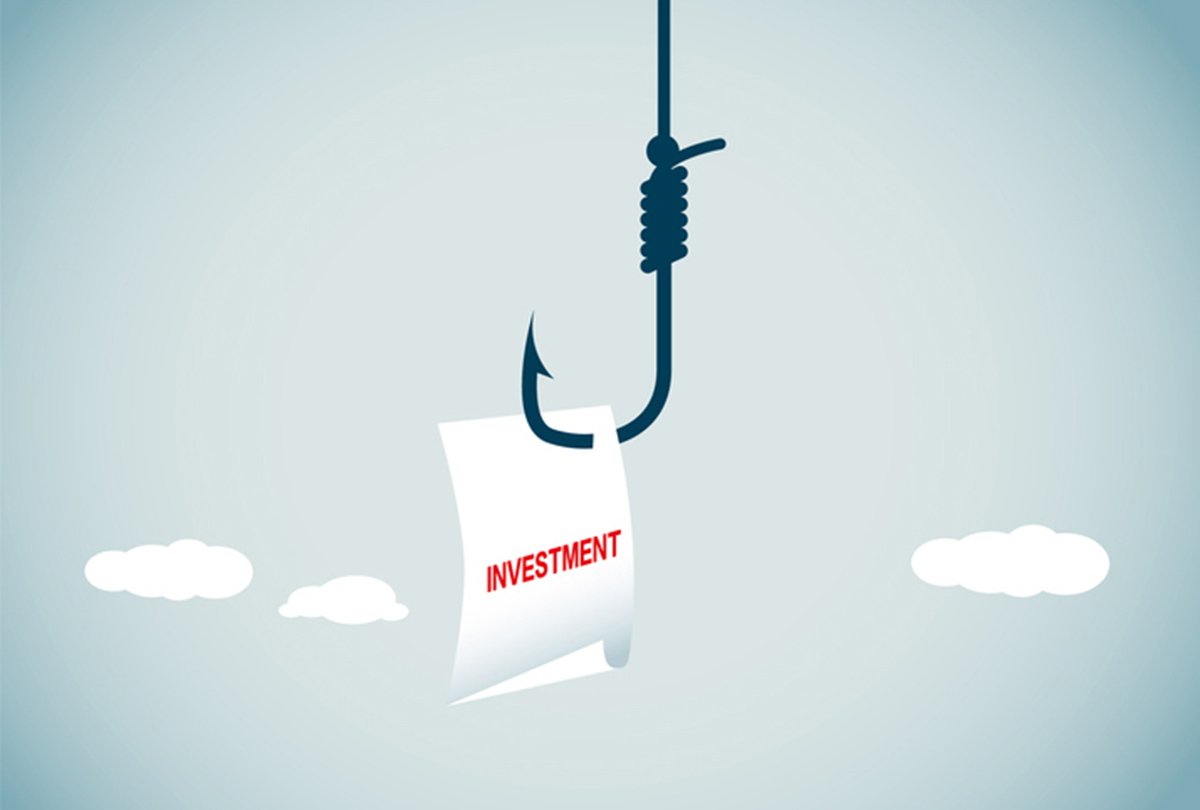Thinking of managing your own investment portfolio?
Self-directed investing allows you to do that. It’s one of several money management strategies, but to do it successfully, you often need to have deeper investment knowledge.
This article explores self-directed investing, and key points to consider if you’re thinking about becoming a self-directed investor.
Self-directed Investing Explained
Self-directed investing, also known as DIY (do-it-yourself) investing, is where individual investors build and manage their own investment portfolios.
As a self-directed investor, you are in charge of your own investment strategy. You decide which investments you want to buy and sell, and when to trade. Generally, you use discount brokers and online trading platforms to make trades.
Being in charge of your own investments means you do your own research into the investments you’re considering, and that can involve analyzing financial statements.
Advantages That Might Make Self-directed Investing Appealing
DIY investing may feel like the right fit for some investors for the following reasons:
- It may be a cheaper way to invest. In some cases, you may end up paying lower fees when you buy and sell your own investments. You’ll likely pay general trading fees and charges, but not fees and charges related to working with a registered professional.
- You may have a greater feeling of control over your investments. Generally, taking control of your portfolio as a DIY investor means you’re more actively involved in your investments and your financial future.
- You may want to learn more about how trading and how the markets work. Self-directed investing involves doing your own research and being in charge of your own investment decisions, which can build your investment and market knowledge.
Potential Pitfalls of Self-directed Investing
While DIY investing can seem appealing, there are some possible disadvantages to managing your own investments.
- Financial markets can be volatile and unpredictable, and you may not know how to act. If you’re a beginner investor, it’s likely that you don’t fully understand how to analyze the companies, markets, or products you’re considering investing in, which could lead to costly mistakes.
- You’re required to do your own research and portfolio management. This could be a disadvantage if you don’t have time, or you don’t have a good understanding of investment strategies and portfolio structure.
- The convenience of online trading could lead to emotional decisions. You may make rash decisions, such as panic-selling during periods of market volatility or holding on to a stock for too long. This may cause you to lose sight of your long-term financial goals or overall investment plan.
Questions to Ask Yourself Before Becoming a Self-directed Investor

Before going at investing alone, consider asking yourself the following four questions.
1. Do I Understand the Relationship Between Investment Risk and Return?
When you consistently seek higher returns, there is usually a greater risk of losing your investment. Understanding your risk tolerance and the different types of investment risk is an essential part of your investor journey.
2. Do I Understand Investment Products and How to Trade In Them?
There are many different investment products out there, and it’s good to have a solid understanding of how they work. This video gives you a quick look at five common types of investments.
It’s also important that you understand how different types of trades work before you start trading. There are different types of accounts and positions you can take when you trade, and different kinds of trades may track different risks.
3. Am I An Emotional Investor?
If seeing your portfolio taking a dive drives you to want sell all or some of your holdings or you constantly worry about losing money, consider whether you are ready for the stress of managing your own investments. Investment markets move up or down daily. Emotional decisions made purely on market movements can have detrimental effects on your portfolio’s performance. Furthermore, trading fees from moving back and forth between investment products can eat into your returns.
4. Do I Like To Research Investments?
Reading about the investment products you purchase and monitoring you portfolio is key to ensuring you are on the right track. You should do this even if you have an investment advisor and should do this on a regular basis to make sure you have the right mix of investments in your portfolio.
More Canadians Are Opening Self-directed Investing Accounts
Recent research from Investor Economics found that Canadians opened more than 2.3 million gross new DIY investing accounts between January and December 2020. In 2019, there were 849,000 new accounts opened.
Last year’s surge in new DIY investing accounts prompted a response from the Investment Industry Regulatory Organization of Canada (IIROC). IIROC has seen a significant rise in inquiries and complaints, and urges investors to be careful about where they get their investing information.
Canada’s provincial and territorial securities regulators have recognized the Canadian Investment Regulatory Organization (CIRO). CIRO consolidates the functions of IIROC and the Mutual Fund Dealers Association of Canada.
Be Wary of Social Media Investing Trends
In recent years, more people have turned to social media as a source of news and information, including financial information. Social media platforms are full of financial advice and money bloggers, and more will continue to post their opinions as time goes on. You can find great information and resources online to help you start planning for your financial future. But there are problems you may run into by relying on investing advice via social media.
Buying Into Investing Trends That Aren’t Suitable For You
Social media investing trends are plentiful, and when they go viral, they may start taking over your social feeds. However, social media-fueled investing trends can be volatile and involve complex investing strategies that may not be suited to those who are newer to investing.
Fraudsters Use Social Media to Present Fraudulent Opportunities

Fraudsters will use social media to trap investors in scams. They use various online tactics, including creating fake websites which can look sophisticated. They may also share false success stories or hop on the latest investing trend to try and gain your trust or appeal to the emotional tug of FOMO (“Fear of Missing Out”) to pressure you into a scheme.
Protect Yourself
Don’t just take someone else’s word for it – do your own research before committing to an investment, and always make decisions according to your risk tolerance, time horizon, and financial goals. Click here to learn how to conduct your own research.
If an investment opportunity seems too good to be true, it probably is. Learn more about the warning signs of fraud by watching these videos.
Alternatives to DIY Investing
As mentioned before, self-directed investing is just one option that you have to manage your investments. A registered investment advisor or a robo-advisor can help.

Working with a Registered Investment Advisor
A registered investment advisor is someone who works with you to manage your investments. They can provide investment advice on a range of securities, and provide guidance according to your risk tolerance. Some are qualified to fully manage your portfolio. Registered advisors work for firms that are independent or owned by full-service organizations like banks.
You may want to work with a registered advisor if you’re a new investor, because you may benefit from more personalized support and information that you’ll receive. Choosing someone who feels like a right fit for you and your financial goals is important, so make sure to ask questions, run a background check, and understand the advisor’s fee structure before selecting the professional you’d like to work with. Go to our Titles and Designations page to find out about the different types of advisors available to you.
You Can Still Be an Active Investor While Working with an Advisor
Working with a registered financial professional does not mean you have to take a back seat when it comes to your investments – you can still play an active role in managing them. That includes monitoring your portfolio and asking questions when you buy or sell investments. These are just some ways to build good money habits over time!
Using a Robo-advisor
Robo-advisors are online investment advisors that often offer a mix of personalized and DIY investing services. There is minimal human interaction, and you’ll likely be offered standardized portfolios containing lower-cost investments. Robo-advisors typically charge lower fees because the operating costs are lower. The process is usually automated, but some models involve human advisors operating alongside the technology.
Robo-advisors make money in various ways. Some platforms may charge management fees up front. Another way is through interest earned on cash balances, which gets credited to the robo-advisor instead of the investor.
Robo-advisory services might be a good choice for you if you’re digitally savvy and want to pay lower fees. Keep in mind that investment recommendations are usually made for you based on algorithms, and they may make decisions without your specific approval for each trade. It’s also a good idea to use a national search tool like AreTheyRegistered.ca to ensure the platform you’re considering is registered.
Want to learn more about what to think about before working with a registered advisor, robo-advisor, or investing on your own? Check out our page on managing your money.
Report a Concern
If you have any concerns about a person or company offering an investment opportunity, please contact BCSC Contact Centre at 604-899-6854 or 1-800-373-6393 or through e-mail at [email protected]. You can also file a complaint or submit a tip anonymously using the BCSC’s online complaint form.
InvestRight.org is the BC Securities Commission’s investor education website. Subscribe to receive email updates from BCSC InvestRight.



